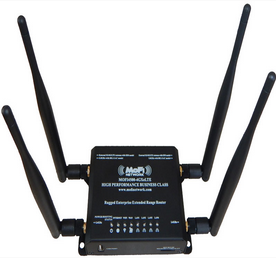Routers made by MoFi Network are affected by several vulnerabilities, including critical flaws that can be exploited to remotely hack a device.
The vulnerabilities were reported to the vendor in May by Rich Mirch, a security researcher at CRITICALSTART. However, some of them remain unpatched.
The researcher discovered a total of 10 vulnerabilities affecting MOFI4500 routers, a majority related to the web management interface, which by default is accessible on all network interfaces. Some of the vulnerabilities can allow an unauthenticated, remote attacker who has access to this web interface to take complete control of the targeted router.
Some of the critical vulnerabilities can be exploited to authenticate on a device using hardcoded or weak credentials. Mirch also uncovered undocumented backdoors that can be abused to gain root access to a device.
The researcher also found that a router can be rebooted remotely by sending it a specially crafted HTTP GET request, and that an unauthenticated attacker can obtain sensitive information, including passwords, from a device.
Mirch says the vendor has patched the critical issues he reported initially, but those fixes introduced new backdoors and other weaknesses that are currently unpatched.
“The initial critical vulnerabilities have been patched,” Mirch told SecurityWeek. “However, they introduced new undocumented backdoors which inadvertently created a new critical unauthenticated remote command injection vulnerability. The vendor has not patched the backdoors or the new RCE.”
The researcher says the vendor has released roughly 10 firmware updates since he reported the vulnerabilities, which has led him to believe that the company does not plan on fixing them. He pointed out that MoFi Network has stopped communicating with him.
SecurityWeek has reached out to MoFi Network for clarifications and will update this article if the company responds.
On June 25, Mirch identified more than 14,000 MoFi routers with an exposed management interface using the Shodan search engine. That number dropped to roughly 7,100 by September 1, which may be a result of US-CERT also being notified. US-CERT was informed about the vulnerabilities on June 10 and it may have asked some ISPs to prevent remote access to their customers’ routers.
Related: Critical Vulnerabilities Can Be Exploited to Hack Cisco Small Business Routers
Related: MikroTik Router Vulnerabilities Can Lead to Backdoor Creation
Related: Credential Leaking Vulnerabilities Impact Comba, D-Link Routers














